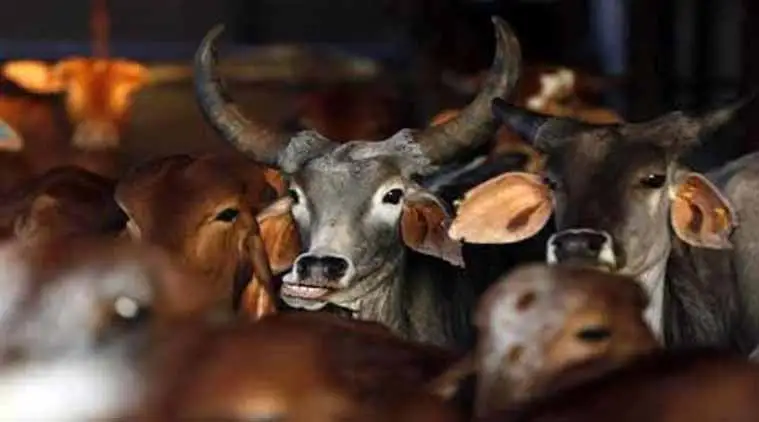Stay updated with the latest - Click here to follow us on Instagram
Shut to protest beef ban, Deonar abattoir resumes business
Before the beef ban, the average number of buffaloes slaughtered at the abattoir in a day stood at 450.
 Before the beef ban, the average number of buffaloes slaughtered at the abattoir in a day stood at 450.
Before the beef ban, the average number of buffaloes slaughtered at the abattoir in a day stood at 450.
with Salman Hashmi
After remaining shut for almost a month in protest against the ban on slaughter of bulls and bullocks in the state, the Deonar abattoir resumed business Wednesday with slaughter of around 180 water buffaloes.
Around 1,000 men resumed their duties of slaughtering, sorting and transporting the meat amid tight security at the abattoir, one of the largest in Asia.
“Until 6 pm on Wednesday, 128 water buffaloes had been slaughtered. We expect 50 more to be slaughtered by the end of the day,”said Dr Kaleem Pathan, deputy general manager at Deonar abattoir.
[related-post]
“We had increased security to avoid any untoward incident in case people stopped the animals from coming to the abattoir for slaughter. Three has been no trouble so far,” Pathan said.
Before the beef ban, the average number of buffaloes slaughtered at the abattoir in a day stood at 450.
Amid the looming danger of job cuts, the butchers, caretakers and entrails handlers agreed to allow the slaughter on Wednesday after beef dealers assured that despite fewer buffaloes coming to the abattoir, a majority of the workers will be retained.
“We were promised that all 1,500 workers will be retained. We will meet again to discuss this further. It’s obvious that they will pay us less because there are fewer animals reaching the slaughter house as buffaloes are not sold by farmers, but are mostly sourced from tabelas in the city,” said Shakeel Qureshi, Deonar leader of the Sarv Shramik Sangh, a workers’ union. “If our needs are not met, we will stage a statewide agitation. Not just us, but over 11 lakh people associated with meat packaging and leather industry depending on the slaughter have been rendered jobless. Minister Eknath Khadse has assured some answers by April 10.”
The limited supply has also led to a hike in the price of carabeef in the month by almost Rs 100. Until a month ago, the boneless carabeef sold at Rs 160 per kg, whereas on Wednesday, boneless carabeef sold at Rs 260 per kg.
However, Deonar beef dealers warned this may not be the case for long. “Today, we had a lot of remaining stock and hence so many could be slaughtered for meat. In the days to come, we will find it difficult to source more water buffaloes,” said Anwar Qureshi, member of the the Mumbai Suburban Beef Dealer Association.
Until a month ago, boneless beef was sold at Rs 200 per kg, while beef with bone was sold at Rs 160 at Crawford Market. Although the slaughter began on Wednesday, there was no beef being sold at retail shops in South Mumbai.
Shabbir Ahmed, a beef wholeseller at the Crawford Market, said, “At 1 am (Thursday morning), carabeef will reach us and we will begin selling from tomorrow. The rates might rise to 400 for boneless and 280 with bone.”
Meanwhile, restaurants famous for their beef dishes such as Sneha and Madina in Mahim and Delux at Fort are yet to get their share of beef. “We were promised beef from April 2, so we will start serving our dishes again from Thursday. We are wary of the increase in the rates though,” said Mohamed Sheikh, cashier at Sneha. On an average, Sneha restaurant used to buy around 15 kg of beef daily before the ban.
mumbai.newsline@expressindia.com







